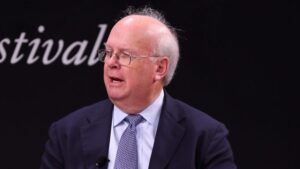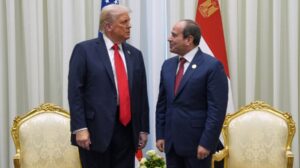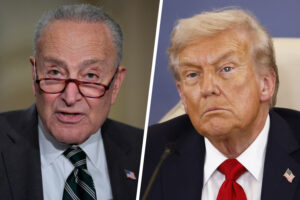The Dictatorship
Israel and Hamas agree to ‘first phase’ of plan to end fighting and release hostages, Trump says

WASHINGTON (AP) — Israel and Hamas agreed Wednesday to pause fighting in Gaza so that the remaining hostages there can be freed in the coming days in exchange for Palestinian prisoners, accepting elements of a plan put forward by the Trump administration that would represent the biggest breakthrough in months in the devastating two-year-old war.
“This means that ALL of the Hostages will be released very soon, and Israel will withdraw their Troops to an agreed upon line as the first steps toward a Strong, Durable, and Everlasting Peace,” President Donald Trump wrote on social media in trumpeting the agreement. “All Parties will be treated fairly!”
Israel and Hamas separately confirmed the contours of their deal, which drew celebratory gatherings from hostage families in Tel Aviv and cautious optimism from some in Gaza. Hamas intends to release all 20 living hostages in a matter of days, while the Israeli military will begin a withdrawal from the majority of Gaza, people familiar with the matter told The Associated Press on condition of anonymity to discuss details of an agreement that has not fully been made public.
Uncertainty remains about some of the thornier aspects of Trump’s proposal — such as whether and how Hamas will disarm, and who will govern Gaza — but the sides appear closer than they have been in several months to ending a war that has killed tens of thousands of Palestinians, destroyed most of Gaza and triggered other armed conflicts across the Middle East. The war, which began with Hamas’ deadly attack on Israel on Oct. 7, 2023, has sparked worldwide protests and brought allegations of genocide that Israel denies.
Israel is more isolated than it has been in decades and Israelis have been bitterly divided over the failure to return the hostages. Palestinians’ dream of an independent state, meanwhile, appears more remote than ever despite recent moves by major Western countries to recognize one. With the outlook bleak as the war’s two-year anniversary approached, the Trump administration put forward a plan last month that it hoped would result in a permanent end to the war and bring about a sustainable peace in the region.
Talks to hammer out a deal have been underway in Egypt since the start of the week, and by the end of the third day of negotiations, a breakthrough emerged.
“With God’s help we will bring them all home,” Israeli Prime Minister Benjamin Netanyahu proclaimed on social media shortly after Trump announced an agreement on the first phase of his plan was at hand. Netanyahu said he would convene the government on Thursday to approve the deal.
For its part, Hamas called on Trump and the mediators to ensure that Israel implements “without disavowal or delay” a deal that it said would require the withdrawal of Israeli troops from Gaza, the entry of aid into the territory and the exchange of prisoners for hostages.
It was unclear from Trump’s statement how much progress has been made on the most divisive aspects of his plan, such as Hamas’ potential disarmament — a demand Israel has insisted upon but the militant group has repeatedly refused. Hamas has long said it will not release the remaining hostages without a lasting ceasefire and guarantees the war would not resume after they are freed.
Trump’s peace plan
The Trump plan called for an immediate ceasefire and release of the 48 hostages that militants in Gaza still hold from their attack on Israel two years ago. Some 1,200 people were killed by Hamas-led militants, and 251 were taken hostage. Around 20 of the hostages are believed to still be alive.
In an interview on Fox News, Trump said Hamas will begin releasing hostages “probably” on Monday.
“This is more than Gaza,” he said. “This is peace in the Middle East.”
Officials have expressed concerns over how long it may take Hamas and other Palestinian militant groups holding Israelis to locate and return the remains of those believed to be dead, as required under the agreement.
Under the plan conceived by Trump, Israel would maintain an open-ended military presence inside Gaza, along its border with Israel. An international force, comprised largely of troops from Arab and Muslim countries, would be responsible for security inside Gaza. The U.S. would lead a massive internationally funded reconstruction effort in Gaza.
The plan also envisions an eventual role for the Palestinian Authority — something Netanyahu opposes. But it requires the authority, which administers parts of the West Bank, to undergo a sweeping reform program that could take years to implement.
The Trump plan is even more vague about a future Palestinian state, which Netanyahu firmly rejects.
Even as many details of Trump’s full plan have yet to be agreed to by both sides, some Palestinians and Israelis expressed happiness and relief at the significant progress that had been made.
“It’s a huge day, huge joy,” Ahmed Sheheiber, a Palestinian displaced man from northern Gaza, said of the ceasefire deal.
Crying over the phone from his shelter in Gaza City, he said he was waiting “impatiently” for the ceasefire to go into effect to return to his home in the Jabaliya refugee camp.
Joyful hostage families and their supporters began spilling into the central Tel Aviv square that has become the main gathering point in the struggle to free the captives. Some popped open a bottle of Champagne and cheered. Crying tears of joy, families hugged released hostages as the square continued to fill with Israelis.
Einav Zangauker, the mother of Israeli captive Matan Zangauker and a prominent advocate for hostages’ freedom, told reporters that she wants to tell her son she loves him.
“I want to smell his smell,” she said. “If I have one dream, it is seeing Matan sleep in his own bed.”
Hints of progress
The arrival of Trump’s Middle East envoy, Steve Witkoff, and the president’s son-in-law, Jared Kushner, on Wednesday at Sharm el-Sheikh for the peace talks, which were also attended by Qatar’s prime minister, Sheikh Mohammed bin Abdulrahman Al Thani, was a sign that negotiators aimed to dive deeply into the toughest issues of the American plan to end the war. Netanyahu’s top adviser, Ron Dermer, was also present for the talks.
Trump expressed optimism earlier in the day by saying that he was considering a trip to the Middle East within a matter of days.
Yet another hint of an emerging deal came later in that event when U.S. Secretary of State Marco Rubio passed Trump a note on White House stationery that read, “You need to approve a Truth Social post soon so you can announce deal first.” Truth Social is the president’s preferred social media platform.
The note prompted Trump to proclaim, “We’re very close to a deal in the Middle East.”
This would be the third ceasefire reached since the start of the war. The first, in November 2023, saw more than 100 hostages, mainly women and children, freed in exchange for Palestinian prisoners before it broke down. In the second, in January and February of this year, Palestinian militants released 25 Israeli hostages and the bodies of eight more in exchange for nearly 2,000 Palestinian prisoners. Israel ended that ceasefire in March with a surprise bombardment.
Praying for a deal
A growing number of experts, including those commissioned by a U.N. bodyhave said that Israel’s offensive in Gaza amounts to genocide — an accusation Israel denies. More than 67,000 Palestinians have been killed in Gaza and nearly 170,000 wounded, according to Gaza’s Health Ministry.
The ministry, which doesn’t differentiate between civilians and combatants but says around half of the deaths were women and children, is part of the Hamas-run government. The United Nations and many independent experts consider its figures to be the most reliable estimate of wartime casualties.
In the Gaza Strip, where much of the territory lies in ruinsPalestinians have been desperate for a breakthrough. Thousands fleeing Israel’s latest ground offensive in northern Gaza and Gaza City have set up makeshift tents along the beach in the central part of the territory, sometimes using blankets for shelter.
Ayman Saber, a Palestinian from Khan Younis, reacted to the ceasefire announcement by saying he plans to return to his home city and try to rebuild his house, which was destroyed last year by an Israeli strike.
“I will rebuild the house, we will rebuild Gaza,” he said.
___
Associated Press writers Eric Tucker in Washington, Sarah El Deeb in Beirut and Melanie Lidman in Tel Aviv contributed to this report. Magdy reported from Cairo and Mednick from Tel Aviv, Israel.
The Dictatorship
The two words Democrats are avoiding in praising the Israel-Hamas peace deal
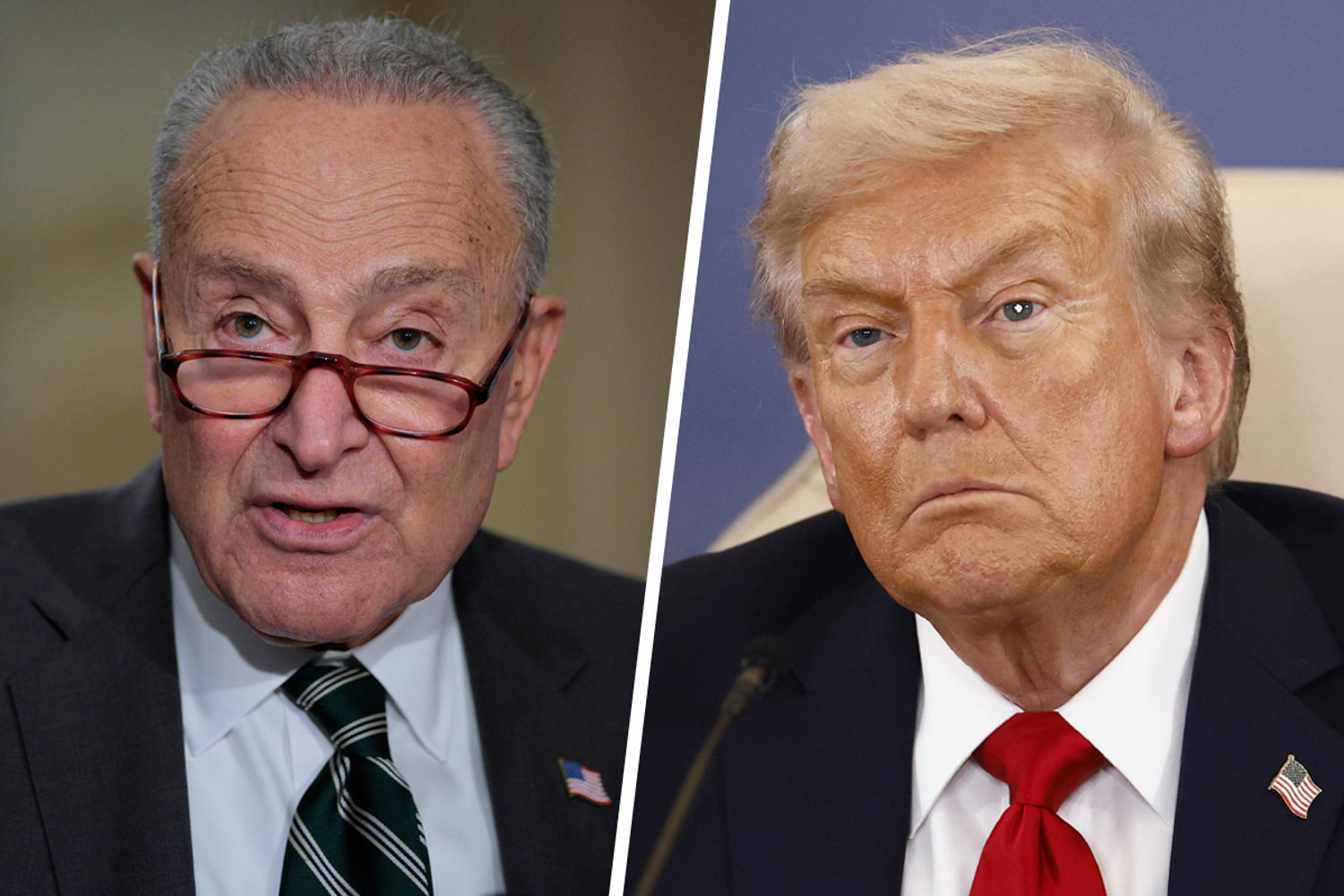
Democrats are heaping praise on the peace deal struck between Israel and Hamas, which unlocked the release of all living hostages in Gaza. But there are two words most Democrats are omitting when discussing the peace agreement: “Donald” and “Trump.”
In statement after statement, Democrats on Capitol Hill lauded the end to the fighting, the liberation of hostages and the hope of a new chapter in the Middle East, applauding “all involved in succeeding to broker the ceasefire agreement” and touting the “power of diplomacy” for getting the globe to that moment.
“After two years of abduction and torture, every living hostage is finally home. Those who were taken on October 7th will outlast the terrorist organization that tore them from their families and homes and unleashed a war of untold suffering,” Rep. Ritchie Torres, D-N.Y., wrote on social media. “Against all odds, the timeless call to ‘Let My People Go’ has been answered.”
Notably, however, there was no mention of Trump.
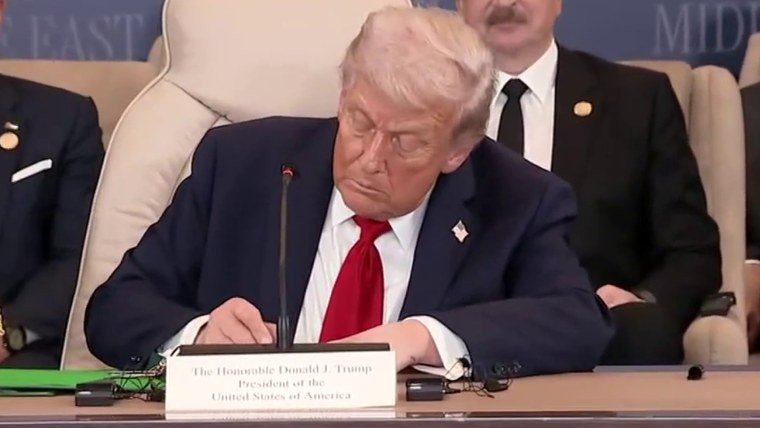
The same could be said for Minority Leader Hakeem Jeffries, D-N.Y.
Jeffries called the agreement “an extremely welcome development.”
“The world will be a better place with a safe and secure Israel living side by side in peace and prosperity with the Palestinian people able to achieve the dignity and self-determination they deserve. We must all recommit to achieve that outcome,” Jeffries said.
Senate Minority Leader Chuck Schumer, D-N.Y., eventually gave Trump a shout-out Monday afternoon, after ignoring the president’s role when the deal was first announced.
In a 175-word statement, Schumer commended “the enormous advocacy of the tireless hostage families, President Trump, his administration, and all who helped make this moment happen.”
While he didn’t necessarily avoid Trump, he was careful to bookend his praise within a statement that celebrated the living hostages coming home and a call to build a lasting peace in the region.
And the ranking Democrat on the House Foreign Affairs Committee, Rep. Gregory Meeks, D-N.Y., posted on X that he was “deeply relieved to see the living hostages released from Gaza today.”
“May their freedom mark a process of healing for them and their families, and the beginning of a durable peace for both Israelis and Palestinians,” Meeks said.
There was no mention of Trump.
The divide between celebrating the deal while ignoring the man who helped broker it highlights the politically tricky terrain Democrats find themselves in. They want to laud the potentially historic peace agreement without giving credit to Trump, a figure they and their voters largely loathe and whose actions throughout the war have drawn criticism.
It’s the latest flashpoint in the long-simmering debate within the Democratic Party over Israel, which has pitted pro-Israel Democrats against progressive lawmakers who sharply criticized the treatment of Palestinians in Gaza — a discourse that has played out publicly.
Republicans, for their part, are taking note of the lopsided reaction. On Monday, Speaker Mike Johnson, R-La., criticized Democrats for not explicitly giving Trump “any credit,” accusing them of being fearful of the blowback from their base.
“They’re afraid, again, as I said in the press conference, of their Marxist base,” Johnson told reporters. “They’re afraid of the radical left, the growing number of radical leftists in the Democrat Party who will attack them if they say anything positive or affirmative about President Trump and his work, and it is a great shame and a great danger to the country.”
The speaker noted that he was “heartened” by the comments of some Democrats, including former Secretary of State Hillary Clinton — Trump’s rival from the 2016 election. In an appearance Friday on CBS News, Clinton said, “I really commend President Trump and his administration, as well as Arab leaders in the region for making the commitment to the 20-point plan and seeing a path forward for what’s often called the day after.”
Of course, some congressional Democrats have joined Clinton in calling out the president.
Sen. Jon Ossoff — who faces a tough re-election next year in Georgia — praised the White House. “I commend the efforts of the Trump Administration and international partners to achieve this moment and will vigorously support the hard work ahead necessary to secure peace, security, and freedom for all people in the Middle East,” he wrote in a statement.

In a post on social media, Rep. Jared Moskowitz, D-Fla., called it an “amazing day for the families” of returned hostages. “And for @POTUS and all the negotiators who made this day possible,” he said.
Sen. John Fetterman, D-Pa., a vocal supporter of Israel, also congratulated Trump the day he announced the peace deal.
And asked during a Sunday appearance on BLN how much credit Trump deserves for the deal, Sen. Mark Kelly, D-Ariz., said Trump “should get a lot of credit.”
“This was his deal,” Kelly added. “He worked this out.”
Of course, Trump has played into the stewing domestic political divide over the situation in the Middle East, criticizing his Democratic predecessors as recently as Monday during his speech before the Knesset.
“All of the countries in the Middle East could have — what we’re doing now — it could have happened a long time ago, but it was strangled and set back, almost irretrievably by the administrations of Barack Obama and then Joe Biden,” Trump said in his hour-plus remarks.
Kevin Frey is a congressional reporter for BLN. He previously served as Washington correspondent for Spectrum News NY1. A graduate of George Washington University, he grew up in Pennsylvania. When he isn’t roaming the halls of Congress, you’ll find Kevin singing with a local choir.
Mychael Schnell is a congressional reporter at BLN, where she covers all happenings on Capitol Hill involving both Democrats and Republicans. She previously covered Congress at Blue Light News. She graduated from George Washington University’s School of Media and Public Affairs with a bachelor’s degree in journalism and mass communication and political science. She is a native New Yorker, Billy Joel’s No. 1fan and a Rubik’s Cube aficionado.
The Dictatorship
Washington state waters down child abuse law after pressure from Trump administration

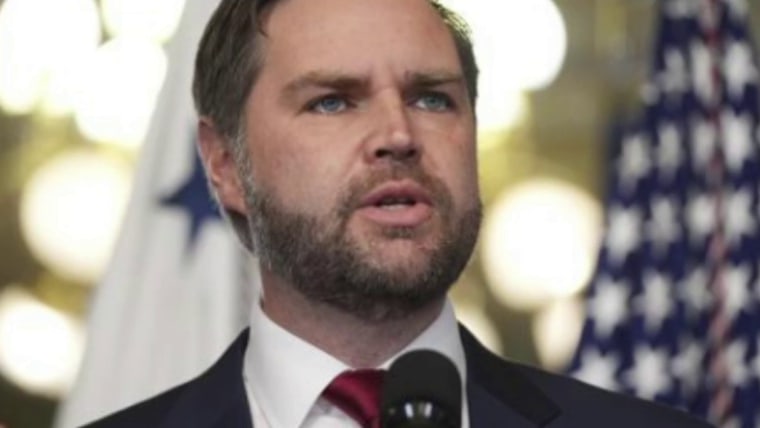
Officials in the state of Washington have agreed to water down a child abuse law after pressure from the Trump administration and local Catholic leaders.
Catholic bishops and the Trump administration had filed lawsuits seeking to overturn a bill signed by Washington Gov. Bob Ferguson, a Democrat and a Catholic, that required faith leaders of all denominations to report allegations of abuse they received in private religious settings — including confession. Though the Catholic Church has a documented history of enabling child sexual abuse, the sponsor of Washington’s bill said the legislation was inspired by reports of abuse within Jehovah’s Witness churches.
Catholic leaders have argued that being forced to report admissions made during a confession amounts to religious discrimination. And after a federal court temporarily blocked the law in July, Washington’s attorney general said late last week that the law will be pared back:
Clergy in Washington will remain mandatory reporters under stipulations filed today by the state Attorney General’s Office and the plaintiffs in lawsuits against the state over Senate Bill 5375. Under the stipulations, however, the state and county prosecutors have agreed — as the court ordered — not to enforce reporting requirements for information clergy learn solely through confession or its equivalent in other faiths. The stipulation now awaits approval by the court.
Most states have so-called clergy-penitent privilege laws that effectively shield religious leaders from having to report child abuse claims they hear in confessional settings. A 2022 report by Boston’s NPR station, WBUR, detailed how this loophole has protected churches from prosecutions and civil lawsuits from victims seeking accountability. Washington had sought to join the few other states without such protections.
In Washington, the governor had denounced the lawsuit filed by Catholic bishops in his state, with Ferguson saying that he was “disappointed my Church is filing a federal lawsuit to protect individuals who abuse kids.”
Jean Hill, executive director of the Washington State Catholic Conference, said in a statement last week that “preventing abuse and upholding the sacred seal of confession are not mutually exclusive — we can and must do both.”
The Dictatorship
Trump administration eyes higher food prices as a result of the immigration crackdown

About a month after Election Day 2024, as Donald Trump prepared to return to the White House, the Republican appeared on “Meet the Press” and explained his victory to NBC News’ Kristen Welker.
“I won on groceries,” he saidadding: “I won an election based on that.” Looking ahead, Trump concludedin reference to food prices for consumers: “We’re going to bring those prices way down.”
After returning to power, the president began boasting about his successes on the issue, assuring Americans that he had lowered the cost of groceries — despite the administration’s own data, which shows grocery costs have gone up this year, not down.
Complicating matters, the president’s own team fears that the problem will soon get worse, as a direct result of the Republican White House’s own agenda. The Washington Post reported:
The Trump administration said that its immigration crackdown is hurting farmers and risking higher food prices for Americans by cutting off agriculture’s labor supply. The Labor Department warned in an obscure document filed with the Federal Register last week that ‘the near total cessation of the inflow of illegal aliens’ is threatening ‘the stability of domestic food production and prices for U.S. consumers.’
According to the Labor Department’s assessment, which was first reported by The American Prospectthe administration needs to act “immediately” to prevent the problem from getting worse.
The Post’s report noted that Agriculture Secretary Brooke Rollins has predicted that, in the aftermath of Trump’s mass deportation agenda, the U.S. farm workforce will become “100% American.” Trump’s Labor Department doesn’t see that as realistic, since Americans lack the will and skills to replace migrant farmworkers.
“The Department concludes that qualified and eligible U.S. workers will not make themselves available in sufficient numbers,” the agency said.
In other words, the president who claimed that he won a second term based on food prices, and who vowed to bring consumer costs at grocery stores “way down,” is already lying about his recent record. But making matters even worse is the fact that his own administration expects the problem to get worse, as food production slows as a result of the White House’s campaign against immigrants, which is likely to reduce supply, pushing prices up.
At that point, Trump will have to choose between competing campaign promises: Will he let immigrants stay and help stabilize food costs, or will he deport these workers and risk the fury of consumers who’ll see prices at their local grocery store climb?
Steve Benen is a producer for “The Rachel Maddow Show,” the editor of MaddowBlog and an BLN political contributor. He’s also the bestselling author of “Ministry of Truth: Democracy, Reality, and the Republicans’ War on the Recent Past.”
-
Uncategorized11 months ago
Bob Good to step down as Freedom Caucus chair this week
-

 Politics8 months ago
Politics8 months agoFormer ‘Squad’ members launching ‘Bowman and Bush’ YouTube show
-

 The Josh Fourrier Show11 months ago
The Josh Fourrier Show11 months agoDOOMSDAY: Trump won, now what?
-

 The Dictatorship8 months ago
The Dictatorship8 months agoPete Hegseth’s tenure at the Pentagon goes from bad to worse
-

 The Dictatorship8 months ago
The Dictatorship8 months agoLuigi Mangione acknowledges public support in first official statement since arrest
-

 Politics8 months ago
Politics8 months agoBlue Light News’s Editorial Director Ryan Hutchins speaks at Blue Light News’s 2025 Governors Summit
-

 Politics11 months ago
Politics11 months agoWhat 7 political experts will be watching at Tuesday’s debate
-

 Politics8 months ago
Politics8 months agoFormer Kentucky AG Daniel Cameron launches Senate bid








